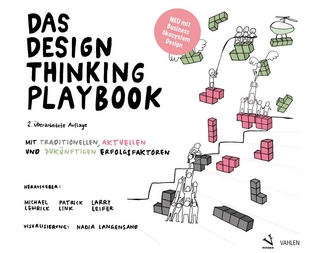
Universal Access and Assistive Technology
Springer London Ltd (Verlag)
978-1-85233-595-3 (ISBN)
- Titel ist leider vergriffen;
keine Neuauflage - Artikel merken
There is an ever-increasing need for designers to create products that are genuinely inclusive of members of society with special needs. The population is growing older and legislative demands on industry to provide equal access for all are growing ever more stringent. Several research disciplines are working to find solutions to the problem of how to develop more inclusive products and the aim of Universal Access and Assistive Technology is to bring experiences from these different perspectives into a single reference. This book contains the proceedings of the first Cambridge Workshop on Universal Access and Assistive Technology (CWUAAT), incorporating the fourth Cambridge Workshop on Rehabilitation Robotics, held in Cambridge, England in March 2002. This book contains contributions from an international group of leading researchers in the fields of Universal Access and Assistive Technology. Contributions include papers on design, robotics and computer access, as well as the experiences of industry.
It is composed of three parts containing material on: * design issues for universal access and assistive technology; * enabling computer access and new technologies; * assistive technology and rehabilitation robotics. Reflecting the spirit of recent moves to extend rights to universal accessibility, this series of workshops and accompanying books is aimed at a broad range of interests, with a general focus on the development of products and solutions. Numerous case studies are used to raise awareness of the challenges faced in developing truly inclusive products, along with examples of good practice.
KEYNOTECommercial Perspectives on Universal Access and Assistive TechnologyPART IDesign Issues for Universal Access and Assistive TechnologyDefining Design ExclusionQuantifying Design ExclusionCountering Design ExclusionInclusive Design - Developing Theory Through PracticeA Systematic Basis for Developing Cognitive Assessment Methods forAssistive TechnologyControl of Virtual Environments for People with :Learning DisabilitiesPART IIEnabling Computer Access and New TechnologiesWhy Are Eye Mice Unpopular? - A Detailed Comparison of Head and EyeControlled Assistive Technology Pointing DevicesCursor Characterisation and Haptic Interfaces for Motion-impaired UsersWeb-based Multimodal Graphs for Visually Impaired PeopleAutomatically Rearranging Structured Data for Customised Special-needsPresentationsBridging the Education DivideContextual On-line Help: A Contribution to the Implementation of UniversalAccess3rd Age Interfaces: A Usability Evaluation of the 'Your Guide' KioskPrototype from an Older User's PerspectiveVirtual Environments for the Training of the Visually ImpairedUser Involvement in the Design of a New Multimedia Communication ServiceIssues Surrounding the User-centred Development of a New InteractiveMemory AidGames Children with Autism Can Play with Robota, a Humanoid Robotic DollPART IIIAssistive Technology and Rehabilitation RoboticsProgress of a Modular Prosthetic ArmDevelopment of a Novel Type Rehabilitation Robotic System KARES IIImproving the Flexibility of an Assistive RobotCommercialising Assistive and Therapy RobotsImproved Assistive Technology Prescription via Usage Log AnalysisVirtual Interface Development and Sensor-based Door Navigation forNonholonomic VehiclesAn Ergonomic One-handed WheelchairGathering User Needs in the development of the POWER-HAND Opening Aid - ASuccessful Consumer Product for the Wider MarketLocomotion Assistance for the Blind"Keep Taking the Medication": Assistive Technologies for MedicationRegimes in Care Settings"I can't talk now" and Other Design Stories: Four Assistive Technologiesfor People With and Without Disabilities
| Zusatzinfo | Illustrations |
|---|---|
| Verlagsort | England |
| Sprache | englisch |
| Einbandart | gebunden |
| Themenwelt | Informatik ► Software Entwicklung ► User Interfaces (HCI) |
| Medizin / Pharmazie ► Physiotherapie / Ergotherapie ► Orthopädie | |
| Sozialwissenschaften ► Pädagogik | |
| Technik ► Medizintechnik | |
| ISBN-10 | 1-85233-595-5 / 1852335955 |
| ISBN-13 | 978-1-85233-595-3 / 9781852335953 |
| Zustand | Neuware |
| Informationen gemäß Produktsicherheitsverordnung (GPSR) | |
| Haben Sie eine Frage zum Produkt? |
aus dem Bereich


